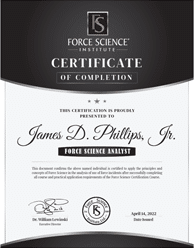
- February 25, 2019
- |
- Popular
Social Media Posts In Court
Social Media Posts Can be Used Against You in Court
Yes, you read that right, social media posts can be used against you in court. Facebook, Snapchat, Instagram, Twitter, the list goes on and on. Your text messages, comments, and photos, are admissible in court. Posts you thought were deleted can be found. All of these things can be taken off of social media, from your account, or from someone else’s account. Further, law enforcement has software that can find and restore deleted information.
SOCIAL MEDIA POSTS CAN LEAD TO RISK PROTECTION ORDERS (RPOs)!
Below are links to two stories where RPOs were issued after social media posts:
The second of these two articles contains information about a 21-year-old UCF student who campus police filed for an RPO after he made social media posts praising mass shooters including the Parkland School shooter.
SOCIAL MEDIA POSTS CAN BE RELEVANT EVIDENCE IN COURT!
Social media content can be relevant evidence in any type of case. This includes criminal, family, and civil cases. Here are some examples in Florida and around the world:
https://www.bizjournals.com/southflorida/blog/2013/08/derek-medinas-facebook-murder-posts.html – Post on social media about killing his wife with statement and photos
https://www.clickorlando.com/news/2018/12/21/fwc-social-media-posts-detail-abuse-of-florida-black-bears/ – Posts on social media portraying evidence of animal abuse
https://www.huffpost.com/entry/kayla-mendoza-2-drunk-2-care_n_7212462 – Posts on social media of being “drunk” and then getting in an accident killing two girls
But Wait, There’s more:
In Orange County, Florida, prosecutors used Facebook photos of Casey Anthony, in her trial. The photos showed Casey out at a club, dancing and smiling, after her daughter had gone missing. Based on the photos, they argued that her state of mind was that of a killer not a grieving mother.
In State v. Harden, 87 So. 3d 1243 (Fla. 4th DCA 2012), the court ruled that MySpace messages were relevant to establish or demonstrate intent or motive of the defendant to be untruthful.
“Social networking site content is neither protected nor privileged,” according to Florida’s Fourth District Court of Appeals. They required a woman who sued Target for damages in a slip and fall case to turn over all her Facebook photos.
Also, in 2015, a UK court admitted 143 messages from WhatsApp into evidence in a civil matter.
Still more
In a 2009, Pennsylvania case, Largent v. Reed, the defense used evidence from the plaintiff’s Facebook account. The plaintiff claimed that she was left physically and mentally damaged after an accident. However, the respondent claimed that the plaintiff has posted photos after the alleged accident that painted a different picture. The photos showed she was well, going to the gym, engaging in various activities and enjoying her life.
Recently, in Lamb v. State, 246 So. 3d 400 (Fla. 5th DCA 2018), the court admitted a “Facebook Live” video into evidence. The jury was allowed to consider the video when weighing credibility. The Defendant was charged with stealing a car. The video allegedly showed him in the car he was charged with stealing. The video was taken shortly after the car was reported hijacked. One of the co-defendant’s posted the video on his Facebook page.
Your posts last forever
A word of caution to anyone posting anything on social media. Once you post something, it is out there for good, even if you later delete it. Comments, photos or phrases can be misconstrued and used in any civil or criminal matter. Comments about only following certain laws, or ignoring the law because you disagree, can get you in serious trouble. You are, in a sense, giving the State their evidence. It cannot be stressed enough that there is no privacy or privilege in social media content. PLEASE think twice before you click that “share” button.
Often times people add their thoughts to posts by other people. They admit they are currently breaking the law. In the alternative, they encourage others to break the law. These comments are easily discovered. Further, the comments can be used as evidence if the government ever chose to make a case. Today, I spent 5 minutes finding examples on FaceBook.
Comments seen recently on Social Media in relation to Firearms
These comments made in response to possible “Assault Weapons” amendment in Florida –
So they think they are going to take my AR_15? Those mother f’ers are gonna have to take it from my cold dead hands.
A ban does not matter. I am not giving up my AR.
Admitting to a Federal Felony
Purchasing guns privately across state lines is ILLEGAL unless done through an FFL. (Learn More: Click Here). In response to a discussion about this on social media:
I brought a number of rifles and pistols to Florida, that I bought privately in another state. I gave two of the rifles and one pistol to my family members here in Florida.
This is an admission to having committed a Federal Felony. If the person who posted this ever has to use one of those guns in self defense, this statement can come back to hurt them.
Think before you post!
Obviously, people will continue to post what they want. We want you to think about what you post before you post it. Remember, social media posts are regularly used in court.
We are here to help!
The Expert Firearm Attorneys at The Firearm Firm are here to help. Further, our primary goal is to keep gun owners legal. If you have any firearm related questions, visit our website. There, you can search our knowledge base, or leave a question for us to answer. The Firearm Firm is a statewide Second Amendment and Self-Defense law firm.
Get in touch

"*" indicates required fields
Copyright © 2022-2025 The Firearm Firm All rights reserved.






















